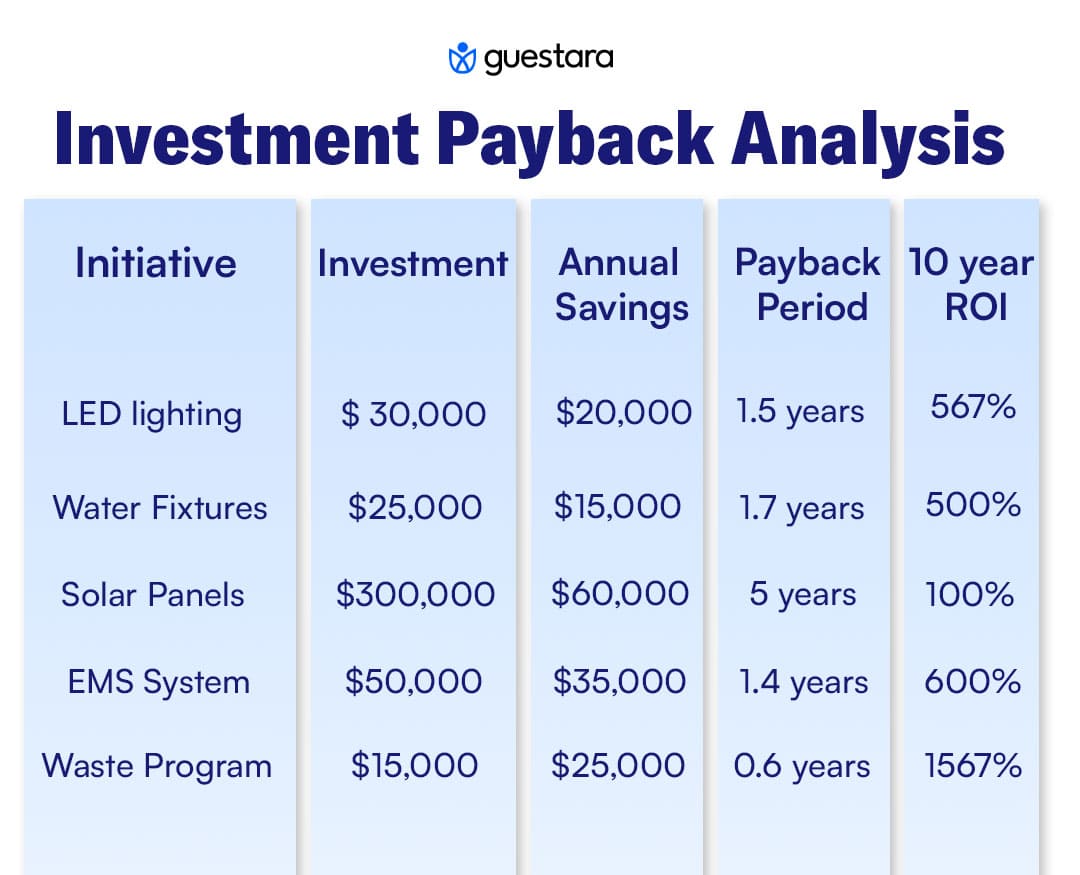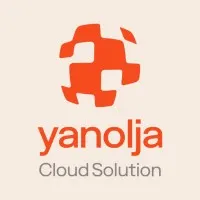Complete sustainable hotel business guide for hotels.

Complete sustainable hotel business guide for hotels.

Transform your hotel into an eco-friendly powerhouse while reducing operational costs by up to 30% and attracting the 83% of travelers who prioritize sustainable accommodation.
The hospitality sector is entering a turning point. With hotels contributing to 1% of the world’s carbon emissions and stricter environmental policies in place, sustainable hotel business is no longer a nice-to-have but a have-to-be operational framework. This complete guide shows you how sustainable hospitality strategies can cut your operating costs by 20-30%, boost revenue by 15% and future-proof your property against regulatory changes and all while catering to the needs of nature-aware guests, a $181 billion market segment in 2025.
The hospitality industry faces unprecedented environmental challenges in 2025. Recent data from the World Sustainable Hospitality Alliance reveals that hotels generate approximately 1% of global carbon emissions, consume 289,700 gallons of water daily, and produce an average of 2 pounds of waste per guest night. With the Paris Climate Agreement mandating a 90% reduction in emissions by 2050, hotels must act decisively to transform their operations.
New environmental regulations in 2025 include:
Sustainable hotels report:
Average savings from sustainability initiatives:
Modern EMS technology can reduce energy consumption by 25-35% through real-time monitoring and automated controls. The Svart Hotel in Norway achieved an 85% reduction in energy use compared to traditional hotels by implementing advanced EMS with AI-powered predictive analytics.
Implementation Cost: $15,000-$50,000 ROI Period: 18-24 months Annual Savings: $30,000-$100,000
Replace all incandescent and CFL bulbs with LED alternatives, including smart LED systems with occupancy sensors and daylight harvesting capabilities.
Key Benefits:
Solar installations now offer 15-20% ROI with payback periods of 4-6 years. The Sokos Hotel Pier 4 in Helsinki combines solar panels with geothermal heating, achieving 60% renewable energy usage.
Options to Consider:
AI-powered HVAC systems learn guest preferences and occupancy patterns, reducing energy use by 30% while improving comfort.
Features to Include:
Capture waste heat from kitchens, laundries, and pools to preheat water or warm spaces, reducing energy needs by 15-20%.
Triple-glazed windows and advanced insulation materials can reduce heating/cooling needs by 25-40%.
Monitor energy consumption by department, floor, or room type to identify inefficiencies and optimize usage patterns.
Modern water-saving technologies can reduce consumption by 30-50% without compromising guest experience.
Essential Upgrades:
Annual Water Savings: 3-5 million gallons for 200-room property Cost Reduction: $15,000-$40,000 annually
The Hotel Hermitage Monte Carlo reuses 60% of wastewater for irrigation and toilet flushing through advanced greywater treatment.
System Components:
Effective programs can reduce laundry loads by 40%, saving water, energy, and labor costs.
Best Practices:
Native, drought-resistant landscaping combined with smart irrigation can reduce outdoor water use by 50%.
Sustainable Landscaping Elements:
Reduce pool water evaporation by 95% and heating costs by 70% with automated pool covers and variable-speed pumps.
The Populus Hotel in Denver demonstrates that luxury and plastic-free operations are compatible, using innovative alternatives throughout the property.
Replacement Strategies:
Achieve 70%+ waste diversion rates through systematic recycling and composting.
Program Components:
AI-powered systems like KITRO can reduce food waste by 40-60% through predictive analytics and portion optimization.
Implementation Areas:
Partner with suppliers to return packaging materials, reducing waste by 25-30%.
Eliminate 90% of paper use through digital check-in, e-invoices, and mobile concierge services.
El Nido Resorts in the Philippines sources 80% of ingredients locally, reducing transport emissions by 60% while supporting community economies.
Sourcing Guidelines:
Work exclusively with suppliers meeting environmental standards for cleaning products, amenities, and furnishings.
Certification Requirements:
The 1893 Restaurant at EHL Campus grows 30% of its produce on-site through permaculture gardens.
On-Site Production Options:
Offer carbon-neutral meeting packages with sustainable catering and zero-waste goals.
Reduce transport emissions by 40% through alternative transportation programs.
Transportation Services:
Engage guests in sustainability efforts through interactive experiences and transparent communication.
Engagement Strategies:
Partner with verified carbon offset providers to offer guests neutralization options.
Build relationships with local environmental organizations for beach cleanups, reforestation, and conservation projects.
Investment: $10,000-$30,000 ROI: 6-12 months
Investment: $50,000-$150,000 ROI: 12-24 months
Investment: $200,000-$500,000 ROI: 24-48 months
Investment: $20,000-$50,000 ROI: Ongoing brand value
Modern IoT deployments can monitor and control:
AI transforms hotel sustainability through:
Leading platforms like Hilton's Connected Room enable:
Tesla Powerwall and similar technologies offer:
Meliá Hotels' partnership with Climatetrade demonstrates:
Levels: Certified, Silver, Gold, Platinum Cost: $20,000-$100,000 Benefits:
Requirements:
Levels: 1-5 Green Keys Cost: $1,500-$5,000 annually Benefits:
Process: Benchmarking, Certification, Planning, Implementation Cost: $3,000-$10,000 annually Focus Areas:
Implementation Timeline: 6-12 months Cost: $15,000-$50,000 Benefits:
Average Annual Savings per 100 Rooms:
Average Annual Savings per 100 Rooms:
Average Annual Savings per 100 Rooms:
United States:
European Union:
Asia-Pacific:

Reality: While some initiatives require upfront investment, 80% of sustainable practices offer payback within 3 years. Quick wins like LED bulbs and linen reuse programs require minimal investment but deliver immediate savings. The average sustainable hotel reduces operating costs by 20-30% within 5 years.
Evidence:
Reality: Studies consistently show 73% of travelers willing to pay more for sustainable accommodation. Booking.com reports sustainable properties achieve 12% higher ADR and 23% better occupancy rates.
Market Data:
Reality: Leading luxury brands prove sustainability enhances rather than compromises guest experience. Properties like Six Senses, 1 Hotels, and Soneva resorts command premium rates while maintaining the highest sustainability standards.
Luxury Sustainable Features:
Reality: Many sustainable practices require no investment, just behavioral changes. Small hotels often achieve better results due to agility and personal guest connections.
Small Hotel Advantages:
Reality: Environmental regulations are tightening globally, making sustainability a business necessity. By 2030, non-compliant properties face potential closure in many markets.
Regulatory Reality:
Guestara, an AI-powered Guest Management Platform, plays a crucial role in helping hotels enhance sustainability without compromising efficiency. Here’s how:
By integrating Guestara into hotel operations, businesses can significantly reduce environmental impact while enhancing guest satisfaction and boosting revenue.
Complete sustainable hotel business guide for hotels.

Transform your hotel into an eco-friendly powerhouse while reducing operational costs by up to 30% and attracting the 83% of travelers who prioritize sustainable accommodation.
The hospitality sector is entering a turning point. With hotels contributing to 1% of the world’s carbon emissions and stricter environmental policies in place, sustainable hotel business is no longer a nice-to-have but a have-to-be operational framework. This complete guide shows you how sustainable hospitality strategies can cut your operating costs by 20-30%, boost revenue by 15% and future-proof your property against regulatory changes and all while catering to the needs of nature-aware guests, a $181 billion market segment in 2025.
The hospitality industry faces unprecedented environmental challenges in 2025. Recent data from the World Sustainable Hospitality Alliance reveals that hotels generate approximately 1% of global carbon emissions, consume 289,700 gallons of water daily, and produce an average of 2 pounds of waste per guest night. With the Paris Climate Agreement mandating a 90% reduction in emissions by 2050, hotels must act decisively to transform their operations.
New environmental regulations in 2025 include:
Sustainable hotels report:
Average savings from sustainability initiatives:
Modern EMS technology can reduce energy consumption by 25-35% through real-time monitoring and automated controls. The Svart Hotel in Norway achieved an 85% reduction in energy use compared to traditional hotels by implementing advanced EMS with AI-powered predictive analytics.
Implementation Cost: $15,000-$50,000 ROI Period: 18-24 months Annual Savings: $30,000-$100,000
Replace all incandescent and CFL bulbs with LED alternatives, including smart LED systems with occupancy sensors and daylight harvesting capabilities.
Key Benefits:
Solar installations now offer 15-20% ROI with payback periods of 4-6 years. The Sokos Hotel Pier 4 in Helsinki combines solar panels with geothermal heating, achieving 60% renewable energy usage.
Options to Consider:
AI-powered HVAC systems learn guest preferences and occupancy patterns, reducing energy use by 30% while improving comfort.
Features to Include:
Capture waste heat from kitchens, laundries, and pools to preheat water or warm spaces, reducing energy needs by 15-20%.
Triple-glazed windows and advanced insulation materials can reduce heating/cooling needs by 25-40%.
Monitor energy consumption by department, floor, or room type to identify inefficiencies and optimize usage patterns.
Modern water-saving technologies can reduce consumption by 30-50% without compromising guest experience.
Essential Upgrades:
Annual Water Savings: 3-5 million gallons for 200-room property Cost Reduction: $15,000-$40,000 annually
The Hotel Hermitage Monte Carlo reuses 60% of wastewater for irrigation and toilet flushing through advanced greywater treatment.
System Components:
Effective programs can reduce laundry loads by 40%, saving water, energy, and labor costs.
Best Practices:
Native, drought-resistant landscaping combined with smart irrigation can reduce outdoor water use by 50%.
Sustainable Landscaping Elements:
Reduce pool water evaporation by 95% and heating costs by 70% with automated pool covers and variable-speed pumps.
The Populus Hotel in Denver demonstrates that luxury and plastic-free operations are compatible, using innovative alternatives throughout the property.
Replacement Strategies:
Achieve 70%+ waste diversion rates through systematic recycling and composting.
Program Components:
AI-powered systems like KITRO can reduce food waste by 40-60% through predictive analytics and portion optimization.
Implementation Areas:
Partner with suppliers to return packaging materials, reducing waste by 25-30%.
Eliminate 90% of paper use through digital check-in, e-invoices, and mobile concierge services.
El Nido Resorts in the Philippines sources 80% of ingredients locally, reducing transport emissions by 60% while supporting community economies.
Sourcing Guidelines:
Work exclusively with suppliers meeting environmental standards for cleaning products, amenities, and furnishings.
Certification Requirements:
The 1893 Restaurant at EHL Campus grows 30% of its produce on-site through permaculture gardens.
On-Site Production Options:
Offer carbon-neutral meeting packages with sustainable catering and zero-waste goals.
Reduce transport emissions by 40% through alternative transportation programs.
Transportation Services:
Engage guests in sustainability efforts through interactive experiences and transparent communication.
Engagement Strategies:
Partner with verified carbon offset providers to offer guests neutralization options.
Build relationships with local environmental organizations for beach cleanups, reforestation, and conservation projects.
Investment: $10,000-$30,000 ROI: 6-12 months
Investment: $50,000-$150,000 ROI: 12-24 months
Investment: $200,000-$500,000 ROI: 24-48 months
Investment: $20,000-$50,000 ROI: Ongoing brand value
Modern IoT deployments can monitor and control:
AI transforms hotel sustainability through:
Leading platforms like Hilton's Connected Room enable:
Tesla Powerwall and similar technologies offer:
Meliá Hotels' partnership with Climatetrade demonstrates:
Levels: Certified, Silver, Gold, Platinum Cost: $20,000-$100,000 Benefits:
Requirements:
Levels: 1-5 Green Keys Cost: $1,500-$5,000 annually Benefits:
Process: Benchmarking, Certification, Planning, Implementation Cost: $3,000-$10,000 annually Focus Areas:
Implementation Timeline: 6-12 months Cost: $15,000-$50,000 Benefits:
Average Annual Savings per 100 Rooms:
Average Annual Savings per 100 Rooms:
Average Annual Savings per 100 Rooms:
United States:
European Union:
Asia-Pacific:

Reality: While some initiatives require upfront investment, 80% of sustainable practices offer payback within 3 years. Quick wins like LED bulbs and linen reuse programs require minimal investment but deliver immediate savings. The average sustainable hotel reduces operating costs by 20-30% within 5 years.
Evidence:
Reality: Studies consistently show 73% of travelers willing to pay more for sustainable accommodation. Booking.com reports sustainable properties achieve 12% higher ADR and 23% better occupancy rates.
Market Data:
Reality: Leading luxury brands prove sustainability enhances rather than compromises guest experience. Properties like Six Senses, 1 Hotels, and Soneva resorts command premium rates while maintaining the highest sustainability standards.
Luxury Sustainable Features:
Reality: Many sustainable practices require no investment, just behavioral changes. Small hotels often achieve better results due to agility and personal guest connections.
Small Hotel Advantages:
Reality: Environmental regulations are tightening globally, making sustainability a business necessity. By 2030, non-compliant properties face potential closure in many markets.
Regulatory Reality:
Guestara, an AI-powered Guest Management Platform, plays a crucial role in helping hotels enhance sustainability without compromising efficiency. Here’s how:
By integrating Guestara into hotel operations, businesses can significantly reduce environmental impact while enhancing guest satisfaction and boosting revenue.
A sustainable hotel business operates in an environmentally responsible way by reducing energy, water, and waste consumption while maintaining profitability and guest satisfaction.
Sustainability helps hotels comply with regulations, lower operating costs, attract eco-conscious travelers, and stay competitive in a rapidly evolving hospitality market.
Hotels can cut costs by using energy-efficient systems, reducing water usage, minimizing waste, automating operations, and adopting smart building technologies.
Yes, sustainable hotels often achieve higher occupancy rates, premium ADRs, increased direct bookings, and stronger guest loyalty from environmentally conscious travelers.
High-impact practices include smart energy management, water conservation, waste reduction, local sourcing, digital guest experiences, and eco-certified operations.
We work closely with the industry leaders to offer seamless solutions





















We’re here to help your whole team stay ahead of the curve as you grow.
Get up and running quickly with a personalized onboarding plan
Connect with real people who really get it, 24/7
Checkout our vast library of fee resources, templates and more
There's only so much we can say — so let us show you! Schedule a demo today and reach your business goals.
